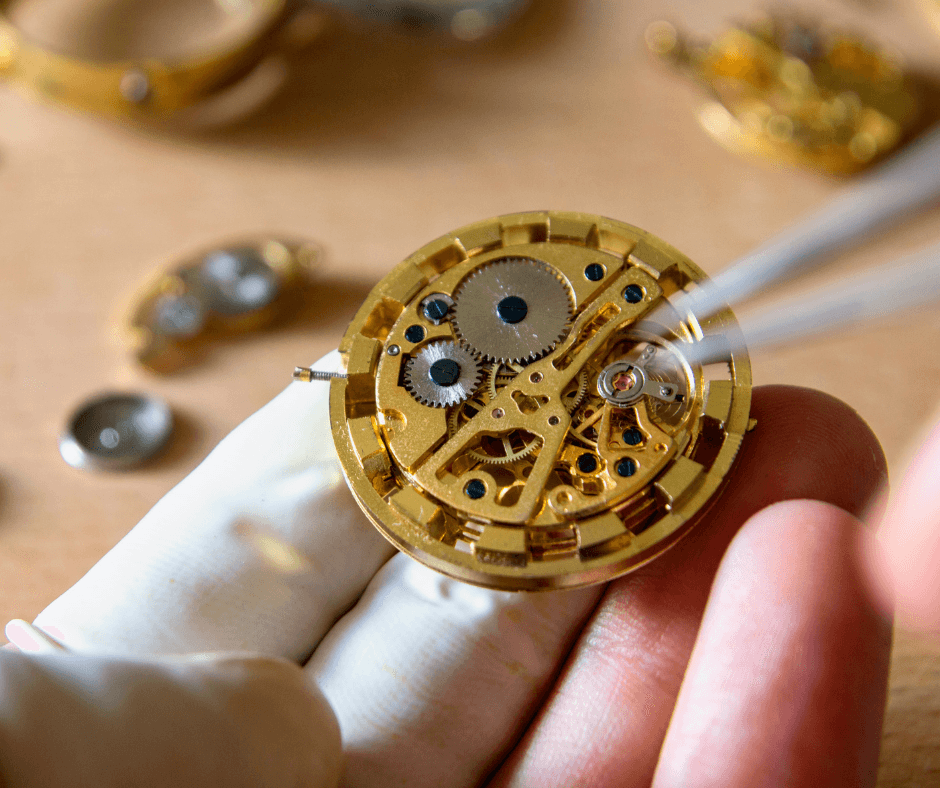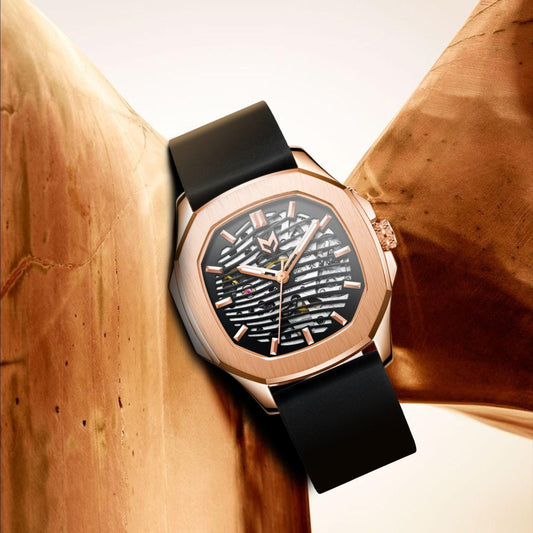
Automatic vs. Quartz Watch Movements: What Sets Them Apart?
Wristwatches are more than just timekeeping tools; they are fashion statements, status symbols, and even sentimental heirlooms. When you dive into the world of watches, you'll encounter various types of movements powering them. Two of the most common and distinct movements are automatic and quartz. But what sets these two apart? Let's delve into the intricacies of automatic and quartz movements.
Automatic Movement: The Craftsmanship of Tradition
The Art of Self-Winding: Automatic watches are often cherished for their intricate craftsmanship. Unlike their quartz counterparts, automatic watches operate without a battery. Instead, they harness the power of your movement. Every time you wear an automatic watch, the motion of your wrist winds the mainspring, storing energy to power the watch. This blending of aesthetics and engineering is a testament to watchmaking tradition.
The Sweep of the Seconds Hand: One of the defining characteristics of automatic watches is the smooth, sweeping motion of the seconds hand. It glides effortlessly around the dial, providing an elegant visual experience. This feature, called a "mechanical movement," makes automatic watches highly sought-after by watch enthusiasts.
Crafted for Longevity: The craftsmanship of automatic watches is a work of art. They're often more substantial in weight due to their intricate inner workings. Quality automatic watches can last for decades or even generations, making them potential family heirlooms.
A Timepiece with a Soul: Many watch enthusiasts appreciate the history, artistry, and tradition that come with automatic watches. They often consider each watch to have a soul—a product of meticulous human craftsmanship.
Quartz Movement: The Precision of Modernity
Unbeatable Accuracy: Quartz watches are renowned for their unparalleled accuracy. They use a tiny piece of quartz crystal, which vibrates at a precise frequency when an electric current is applied. This consistent vibration serves as the heartbeat of the watch, ensuring it keeps time with incredible precision.
Low Maintenance: Unlike automatic watches, quartz watches don't require daily wear or winding to operate accurately. They're incredibly low maintenance, which makes them an excellent choice for those who want a no-fuss timepiece.
Lightweight and Affordable: Quartz watches are typically lighter and more affordable compared to automatic watches. This makes them practical choices for everyday use and for those who prefer a minimalist design.
A Wide Variety: The accuracy and simplicity of quartz movements allow for a vast range of designs and features. This variety includes digital watches, sports watches, and even smartwatches that integrate with smartphones.
The Choice Is Yours
When choosing between automatic and quartz watches, it ultimately comes down to your personal preferences and how you plan to use your timepiece. Do you want a watch with a rich history and intricate craftsmanship, one that reflects a connection to horological tradition? An automatic watch may be your perfect choice. If accuracy and low maintenance are your priorities, quartz watches offer unbeatable precision and simplicity.
In the world of watches, both automatic and quartz movements have their unique places, offering distinct features and experiences. What's certain is that both hold a special appeal to those who appreciate the art and science of timekeeping. So, whether you opt for the timeless elegance of an automatic watch or the precise functionality of a quartz watch, your wrist becomes the canvas on which you paint your personal style and preferences.
Automatic Movement: The Craftsmanship of Tradition
The Art of Self-Winding: Automatic watches are often cherished for their intricate craftsmanship. Unlike their quartz counterparts, automatic watches operate without a battery. Instead, they harness the power of your movement. Every time you wear an automatic watch, the motion of your wrist winds the mainspring, storing energy to power the watch. This blending of aesthetics and engineering is a testament to watchmaking tradition.
The Sweep of the Seconds Hand: One of the defining characteristics of automatic watches is the smooth, sweeping motion of the seconds hand. It glides effortlessly around the dial, providing an elegant visual experience. This feature, called a "mechanical movement," makes automatic watches highly sought-after by watch enthusiasts.
Crafted for Longevity: The craftsmanship of automatic watches is a work of art. They're often more substantial in weight due to their intricate inner workings. Quality automatic watches can last for decades or even generations, making them potential family heirlooms.
A Timepiece with a Soul: Many watch enthusiasts appreciate the history, artistry, and tradition that come with automatic watches. They often consider each watch to have a soul—a product of meticulous human craftsmanship.
Quartz Movement: The Precision of Modernity
Unbeatable Accuracy: Quartz watches are renowned for their unparalleled accuracy. They use a tiny piece of quartz crystal, which vibrates at a precise frequency when an electric current is applied. This consistent vibration serves as the heartbeat of the watch, ensuring it keeps time with incredible precision.
Low Maintenance: Unlike automatic watches, quartz watches don't require daily wear or winding to operate accurately. They're incredibly low maintenance, which makes them an excellent choice for those who want a no-fuss timepiece.
Lightweight and Affordable: Quartz watches are typically lighter and more affordable compared to automatic watches. This makes them practical choices for everyday use and for those who prefer a minimalist design.
A Wide Variety: The accuracy and simplicity of quartz movements allow for a vast range of designs and features. This variety includes digital watches, sports watches, and even smartwatches that integrate with smartphones.
The Choice Is Yours
When choosing between automatic and quartz watches, it ultimately comes down to your personal preferences and how you plan to use your timepiece. Do you want a watch with a rich history and intricate craftsmanship, one that reflects a connection to horological tradition? An automatic watch may be your perfect choice. If accuracy and low maintenance are your priorities, quartz watches offer unbeatable precision and simplicity.
In the world of watches, both automatic and quartz movements have their unique places, offering distinct features and experiences. What's certain is that both hold a special appeal to those who appreciate the art and science of timekeeping. So, whether you opt for the timeless elegance of an automatic watch or the precise functionality of a quartz watch, your wrist becomes the canvas on which you paint your personal style and preferences.
Tags:






